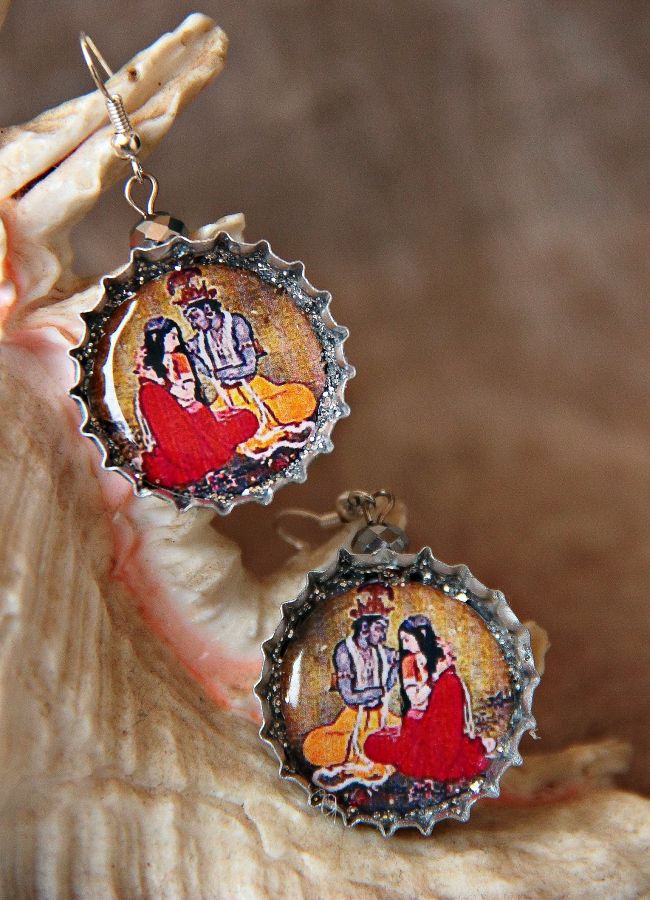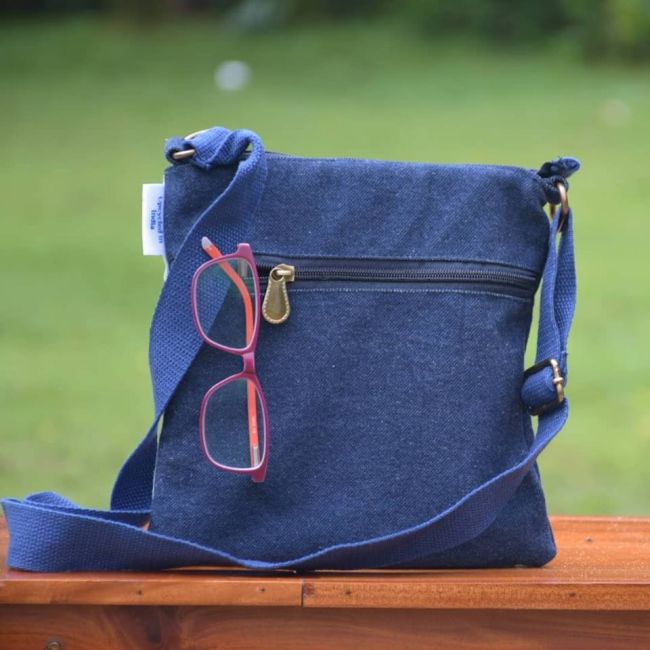New Delhi: We are living in a time when India’s tallest garbage mountain is being called ‘Mount Everest’ by locals, with all pun intended. Ghazipur landfill is making headlines everywhere as it is on course beat Taj Mahal by 2020, in terms of height. The expansive pile of trash is already standing at 213 feet, which is as tall as the Tower Bridge in London and is expected to be taller than the 239ft height of Taj Mahal, in one year’s time. With waste growing at such a startling pace, it is high time to start thinking of ways to reduce our carbon footprint in some way. One of the immediate things that need urgent attention is the way we understand the term ‘Fashion’.
According to the industry experts and a study published in Indian Textile Journal –In India, every year, more than 1 million tonnes of textile waste ends up reaching the landfills, courtesy our buying behaviour – we tend to buy new things and discard old items mindlessly, without thinking where these will ultimately land up. As a conscious citizen, it becomes everyone’s responsibility to understand how we can help save the planet by reducing waste load.
Also Read: #FashionForACause: Alia Bhatt Promotes Sustainable Fashion For A Cleaner And Greener Future For All
Here are five fashion hacks to cut down on waste burden :
Go For Hemp Or Organic Clothing
Did you know cotton is a very water intensive crop, it uses on average 720 gallons of water to produce enough fiber for a shirt? Moreover, this natural fibre is made using dangerous chemicals – it uses 24% of the world’s pesticides and 11% of the world’s insecticides that can end up damaging arable land and can seep into local waterways contaminating the ground and drinking water.
On the other hand, HEMP, a sustainable fibre is naturally resistant to pests and requires no chemicals during cultivation. Moreover, Hemp plants use half the water as compared to cotton plants to produce twice the amount of fiber.
Hemp is extremely versatile and durable, so if you wish to kick-start your green journey, switch to hemp clothing completely. For variety, you can also opt for organic clothing, which is basically made using eco-friendly materials like organic cotton, bamboo fabric and hand-woven khaki with environment-friendly colours. In today’s day and age, there are varieties of brands that offer hemp or organic clothing options – one just needs to step up and take action.
Also Read: Free India From Waste Burden: 5 Swaps To Make To Lead A Zero Waste And Sustainable Lifestyle
Green Jewellery For The Greener Future
Accessories are an important part of anyone’s life – so, instead of buying the traditional accessories go for jewellery made out of waste materials.
A duo from Nashik can help you make this green choice! Mrunmayee Pendse Chaudhari and Shilpa Dahake’s venture – ‘Beej’, wherein one can buy trendy jewellery and accessories made using seeds which are usually thrown away. The earrings are priced between Rs. 100-250, the necklace and earring sets are valued between Rs. 250-350, one can place an order through their social media accounts.
On the other hand, in Bengaluru, Rituparna Das and Angeline Babu started Silver Nut Tree to help Urban India go green by providing them eco-friendly jewellery. From utilising bottles, tyres, CDs waste the duo started turning any waste item they can find into beautiful jewellery. Handcrafted studs made by fusing images on glass and made using bottles caps are being sold for Rs. 1300, jhumkas for Rs. 2100 and bracelets like the Teal Tales Bracelet made using PET bottle for Rs. 2,400.
Upcycled Bags On The Go
Ditch the thought of spending thousands of rupees on buying a fancy bag. Instead, make yourself an upcycled bag using old clothes or jeans or simply get one stitched using old clothes. 27-year-old Soumya Annapurna Kalluri from Mumbai who started a social enterprise Dwij in 2018 with a motto to help reduce the waste load from India’s landfills by upcycling old denims into fashionable bags or hand clutches can help you make this green choice. Or, contact Meenakshi Sharma from Delhi who has started upcycling project ‘Use Me’.
Meenakshi is working with 20 other women and together is making an effort to make India waste-free. She takes orders for making upcycled bags that cost between Rs 500 and Rs 2000. The team collects scrap or waste products from factories, boutiques, homes and then conceptualises on how to turn them into beautiful products.
Also Read: This 66-year-old Mumbai Woman Is Saving The Environment By Upcycling One Plastic Bag At A Time
Do Make-Up By Being Responsible
This time when you go out for make-up shopping, think green! Ditch all the products that have microbeads, these are solid plastic particles of less than one millimeter and pose a serious threat to the environment.
Choose make-up made out of natural or environmentally-friendly products and are not sold in harmful plastic packaging.
Happy Green Feet
Next time before you discard your old shoes, simply ask yourself this one question – where will it land up? These non-biodegradable items end up reaching our already overfilled landfills and oceans thereby polluting it drastically. According to the World Health Organisation, globally every year more than 35 crore pairs of shoes are discarded. So, the next time you are about to say goodbye to your old pair of shoes and buying a new one – think of sustainability and look for options that will help reduce your carbon footprint. Give the old pairs to people in need and buy yourself footwear made of organic materials like hemp or look for eco-friendly alternatives.
Indulge yourselves with footwear made from old tyres from Paaduks or opt for Greensole, where new footwears are made by refurbishing old shoes.
Also Read: Travel In An Eco-Friendly Way: Five Point Guide To Lead A Zero Waste Trip
NDTV – Dettol Banega Swachh India campaign lends support to the Government of India’s Swachh Bharat Mission (SBM). Helmed by Campaign Ambassador Amitabh Bachchan, the campaign aims to spread awareness about hygiene and sanitation, the importance of building toilets and making India open defecation free (ODF) by October 2019, a target set by Prime Minister Narendra Modi, when he launched Swachh Bharat Abhiyan in 2014. Over the years, the campaign has widened its scope to cover issues like air pollution, waste management, plastic ban, manual scavenging and menstrual hygiene. The campaign has also focused extensively on marine pollution, clean Ganga Project and rejuvenation of Yamuna, two of India’s major river bodies.



































